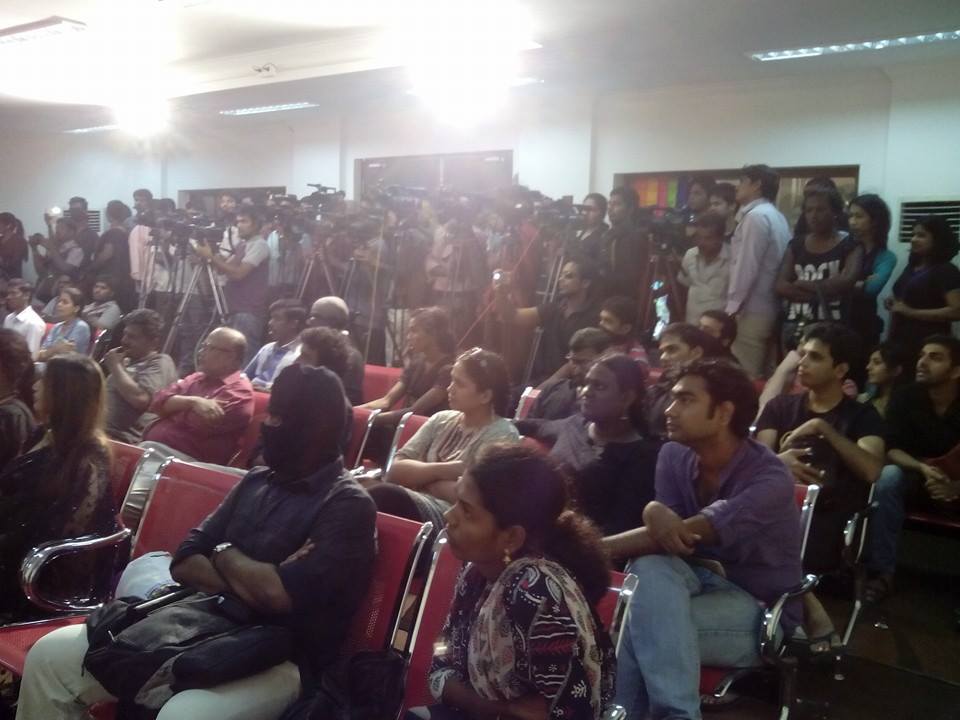Disclaimer: This post is likely to be inarticulate as hell,
but I need to write to clear up my thinking.
I felt a great deal of anger at the Supreme Court's 377
verdict. When I heard, from a senior at college (whose blog post on Legally
India on the Delhi High Court's judgement was the first thing I ever read by a
nalsarite) that the Court had upheld the appeal, I spent a couple of hours
covered in goosebumps at the idea that the highest judicial body in the land
could make such a decision. I spent the day, as hopeless facebooking farts like
me are wont to do, posting stuff on facebook, reporting abuse when I came by
homophobic comments (there is great pleasure in hitting that report abuse
button, sometimes, I feel) or arguing with people about the judgement and the Court's
ideal role. Then the judgement came out, and I frankly was not surprised that
it had no content worth engaging with.
The cause for my anger was, at the most basic level, the
fact that people I know and care about (and even some I don't care so much
about) are being judged and declared to be criminals for no discernible reason.
Beyond the personal, though, the worry for me was that our society, and our
institutions, are still colonised. We still think in certain moral terms, we
have yet to throw off so many of the shackles that were used by the British to
confine us. To my mind, this judgement is part of a continuum that legalises
illegitimate state violence and intrusion into the choices of individuals and
of peoples. Despite all the articles on why we should all care, not only the
LGBT community, I wonder if the verdict is really being seen as a part of a
larger malaise. I wonder if calls for solidarity are meant to extend both ways.
On comment chains on facebook, I found it common that those bringing up other
concerns of violence that are not getting requisite attention were told not to
side-track from the point. Whither solidarity? What is the point? If the point
is merely that Section 377 exists and has been upheld to be constitutional, so
do the Andhra Pradesh (Telangana Area) Eunuchs Act, AFSPA and very many others
that are just as damaging (if not worse) symbolically and in action. Are they not the
point too? Are they side issues? Do they not deserve global days of rage? Is it
individual movements' fault that they do not have access to such publicity?
One of the images that caught my eye, in the many that are
doing the rounds on the internet is a picture of the press meet at Chennai:

I could not get my eyes off the battalion of cameras in this
photograph. To have access to such publicity is not merely the
work of the movement (though that is definitely not to be discounted). There
are definitely class elements to it. More importantly, however, it is an issue
that corporate media finds, sells. If packaged in fluffy, byte-sized snippets
on love over all else, it makes very few people uncomfortable. But love isn't
fluffy and easy on the mind. Love is powerful, it scoffs at petty institutions
and can be deeply subversive. The call for dignity of the individual has the
power to change much that is wrong with Indian society. That is pretty radical
stuff. This is a moment that could lead to deep thought on what we want the
Indian State to stand for or it could be a moment about Section 377 of the IPC.
I worry that it is only going to be the latter:

Fanon, aptly said: "The colonial world is a world divided into compartments.… In the
capitalist countries a multitude of moral teachers, counselors and
‘bewilderers’ separate the exploited from those in power. In the colonial
countries, on the contrary, the policeman and the soldier, by their immediate
presence and their frequent and direct action maintain contact with the native
and advise him by means of rifle butts and napalm not to budge. It is obvious
here that the agents of government speak the language of pure force. The
intermediary does not lighten the oppression, nor seek to hide the domination;
he shows them up and puts them into practice with the clear conscience of an
upholder of the peace; yet he is the bringer of violence into the home and into
the mind of the native."
Ours is a State that merges the worst of both, and we have
much to agitate about. And that agitation cannot happen if we're unwilling to
let others 'sidetrack' from the 'point'. To have social movements divided into
compartments is what suits governing institutions, not movements. I have felt
an unsettling discomfort at the pit of my stomach about the Global Day of Rage,
not because the rage is unwarranted, but because of the narrowness of its
construction. A recognition of privilege by those leading the LGBT movement
would, perhaps, turn the protest against unwarranted State violence and
coalesce with others fighting violence and labelling. The movement calls
for solidarity, but at this moment, it ought also be extending solidarity.
It is true that this Supreme Court verdict is a blot on our
judicial history. As Cover would say, not only did it reach a decision that can
be termed morally reprehensible, it showed no commitment to its stand, for it
gave no real reasons. To my mind, that is the bigger evil; the idea that a
State can choose to turn down people fighting for their ways of life, without
needing to reason it out to its people, without committing to its position. This is a moment when we can force this
accountability upon our institutions; it is much much bigger than any one problematic provision.
No comments:
Post a Comment